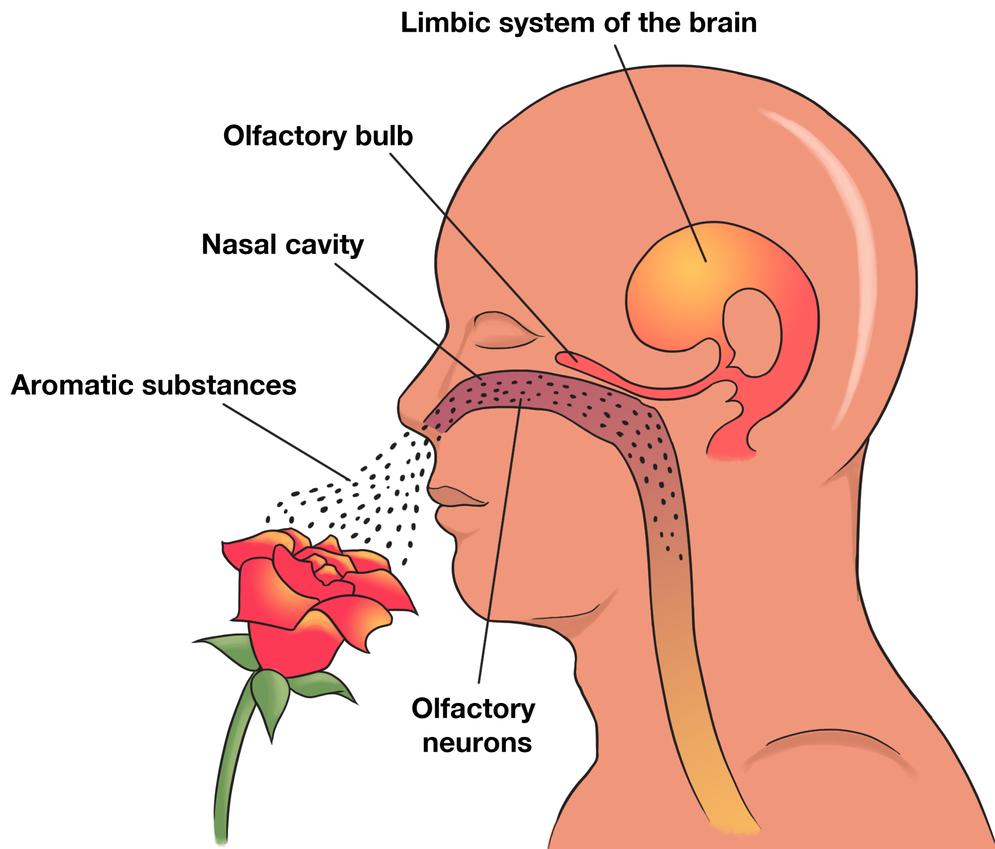Related Blogs
A Brief History of Perfumes
Perfume has been a fundamental part of our society throughout the ages. Since it has moved and also changed along with our culture, its importance lies in not only the fragrance attached to it, but also the science and history behind its creation. This aromatic substance has been closely connected to both human culture and scientific advancement throughout history. Research and records show that even during the days of early civilizations, people used natural perfumes for important rituals and personal care. Some of these historical sources take us back to the nineteenth century, where noted French chemist Louis Pasteur had identified perfume ingredients with his experiments. Other sources take us further back to the times of ancient Greece, where perfumes are mentioned in the poetry of Homer.
Early archaeological proof from Eastern Mediterranean and Mesopotamian culture points to oils derived from plants being used ceremonially and cosmetically. There is also heavy documentation of events during the ancient times when perfume’s sensory and therapeutic effects were praised.
In later times, people continued to develop the knowledge passed down from earlier generations. In the 11th century, advancements in perfume-making in the Middle East aligned with expanding global trade. This allowed European nobles and merchants to obtain rare aromatic ingredients, thereby allowing them to craft unique scents. This immediately led to recognition in a high social status. 19th century scientific advancements then made perfume available through improved technical efficiency, which increased availability beyond exclusive classes. Lately, people’s desire for sustainability has led to a renewed interest in using natural scents in perfumes, while still valuing traditional methods and exploring new synthetic options.
Today, we find perfume’s use generally reserved for purposes of self-expression and any outgoing events. This creates a parallel with the ancient days, when natural aromas were utilised for religious ceremonies and rituals. So, regardless of the technology and the changing times, societies have always found perfumes as significant catalysts to separate mundane events from important events. More importantly, perfumes have consistently been viewed as a powerful tool for self-expression and grooming.
As our chemistry understanding evolves, so does our appreciation for perfumes and their impact on both individuals’ lives and society at large. Looking back invites appreciation for both perfume’s enduring charm and the dynamism of human creativity over long periods.
The story of perfume is truly the story of ourselves.
What Role Does Perfume Play in Cosmetics?
Perfume plays a very important role in the world of cosmetics. Its fundamental purpose is enhancing an individual’s natural aroma, while also giving personal products a sensory feel that is meant to leave a lasting and pleasant impression. These are cultivated and nurtured using a blend of aromatic compounds, such as essential oils, solvents, and fixatives, and put together innovatively. The overall purpose, though, remains the same – to enhance a person’s impression and promote a sense of confidence in self-expression.
This ties into one of the most important factors – perfume’s ability to provide olfactory pleasure.
One must note that our sense of smell is very closely related to our emotions and memories. When we go shopping for fragrances, it is only natural that we are instantly drawn to smells that we resonate with, irrespective of whether the actual quality of the product is good or not. Certain smells can evoke specific moods and feelings. This is because our sense of smell is directly linked to our limbic system, which is the emotional centre of the brain. Various smells carry various moods with them and thereby instigate various emotions in us. For example, the smell of Vanilla is generally known to bring about a sense of calm and tranquillity, while the smell of fruits like Ginger and Grapefruit can help bring a feeling of vigour and energy.

Moreover, as mentioned above, perfume serves as a form of expression and identity. This feeling is enhanced by the way a certain perfume smells over some time. The choice one makes in smelling a certain way plays into what kind of feeling they would want to exude.
In addition to its emotional and personal significance, scent also has a useful part in cosmetics.
It assists in making sure any disagreeable body smells stay hidden, and instead provides freshness and tidiness. Perfume is also often used to boost the aroma of other beauty items, like creams, soaps, and hair care products, crafting a consistent and pleasurable sensory journey.
Olfactory pleasure is derived from the complex interaction between the fragrance molecules and our olfactory receptors. When we inhale a pleasant scent, these receptors send signals to the brain, triggering the release of neurotransmitters like dopamine and serotonin, which are associated with pleasure and well-being. This physiological response explains why certain fragrances can evoke feelings of happiness, relaxation, or even sensuality.
A Closer Look
Scientifically, here’s how fragrance enhances one’s sensory experience –
- Olfaction – Perfumes can stimulate the epithelium in our noses. This in turn activates the receptor neurons which send signals to our limbic system. This process brings about an emotional response
- Proteins – Through the mucus layer, odorant proteins send aroma compounds to a person’s olfactory receptors. Since different proteins respond differently to the molecules, it becomes easier for us to differentiate between all the different scents
- Neurotransmitters – Warm smells from the perfume release neurotransmitters within us – serotonin and dopamine – into our brains, which leads us to experience a rush and pleasure
- Skin Textures – Some chemicals can pierce through our skin and affect our tactile receptors (elements like linalool). These soften our skin, and the products have a larger impact on us
- Fixatives – Due to their components, Ambroxan and Galaxolide are materials used to maintain the durability of perfumes on our skin
Fragrances stimulate us in various ways through different materials and components, but it is suffice to say that perfume’s overall role in cosmetics extends beyond mere fragrance. As seen above, it visibly affects our character and identity very much, and it does so by affecting our personal emotions and connections.
Due to their intricate compositions, fragrances are often categorised into three main components – top notes, middle notes, and base notes. Each of these notes plays a crucial role in creating a well-rounded and long-lasting fragrance experience.
Top Note: This is the initial impression of a fragrance and is the first scent that you will perceive upon use. Top notes are usually light and volatile and they provide a burst of freshness that can smell fruity or herbal. They also evaporate relatively quickly.
Middle Note: Following the top notes, the middle notes emerge and form the essence of the fragrance. Working as the transitional element, they link the initial impression to the deeper, more enduring base notes. Middle notes are often floral or spicy to smell, and they add complexity and depth to the overall scent.
Base Note: The base notes are the foundation of the fragrance, and they provide its depth and richness. These notes emerge after the top and middle notes have dissipated and are typically rich, warm, and long-lasting. Base notes can include ingredients like woods, musk, or vanilla, and create a lasting impression while ensuring that the fragrance remains on the skin for a long period.
In the context of maintaining the top and base notes for a longer duration, products like Dwel by NICHEM employ advanced formulation techniques. By selecting and blending high-quality ingredients, Dwel helps retain the fragrance over long periods. Special attention is given to the top notes, ensuring that they have a controlled release, allowing for a prolonged and gradual evaporation.
What sets Dwel apart isn’t only its commitment to both quality and sustainability, but also the brand’s emphasis on the ecological and moral aspects of its production. Dwel strives to create products that not only elevate personal identity and emotions through fragrance but also contribute to a conscientious and responsible approach to beauty and cosmetics.
Are There Potential Allergens in Perfumes Used in Cosmetics?
Absolutely! There are possibilities of potential allergens in perfumes which are used in cosmetics. Some examples of allergens are Coumarin, citrus peel oil, lavender oil, limonene, linalool etc.
People with sensitive skin or known fragrance allergies need to check the ingredient lists of perfume-infused cosmetics carefully for potential triggers. Products marketed as hypoallergenic or fragrance-free are safer options for those predisposed to reactions. As with any cosmetic, patch testing is also advisable.
About NICHEM
Long-standing Specialty Chemicals player with ISO 9001:2015 certification and a history of providing specialty solutions for over 25 years. The company is headed by senior chemical industry specialists with the combined expertise of more than 100 years. With an emphasis on eco-friendly, non-toxic products, the company’s primary strength is research, development, and customization. More information on NICHEM can be found at https://nichem.solutions.



